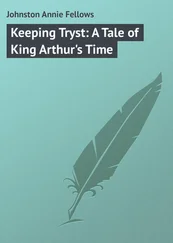Now the preacher's blue sleeves thrash and bits of spittle from his mouth spark in the lectern light, and the choir below him sways, with Joryleen in it. "And Caleb said, 'Let's go, let us go up at once, and possess it'-'We can take 'em, giants or not. Let's go do it!' " And die tall coffee-colored man reads, in a voice vibrant and rapid, taking many voices: " 'And all the congregation lifted up their voice, and cried; and the people wept that night. And all the children of Israel murmured against Moses and against Aaron: and the whole congregation said unto them, Would God that we had died in the land of Egypt! or would God we had died in this wilderness!' "
He looks gravely out at the congregation, his spectacles circles of pure blind light, and repeats, " 'Would to God that we had died in Egypt!' So why did God bring us out of slavery into this wilderness"-he consults his book-" 'to fall by the sword, that our wives and our children should be a prey'? A prey! Hey, this is wrious! Let's hustle our asses- our oxes and asses-back to Egypt!" He glances into the book, and reads a verse aloud: " 'They said to one another, Let us make a captain, and let us return to Egypt.' That Pharaoh, he wasn't so bad. He fed us, though not much. He gave us cabins to sleep in, down by the marsh with all the mosquitoes. He sent us welfare checks, pretty regular. He gave us jobs dishing up fries at McDonald's, for the minimum wage. He was friendly, diat Pharaoh, compared to those giants, those humongous sons of Anak."
He stands erect, dropping his impersonation for the moment. "And what did Moses and his brother Aaron do about all this talk? It says right here, in Numbers fourteen, five: 'Moses and Aaron fell on their faces before all the assembly of the congregation of the children of Israel.' They gave up. They said to the people, the people they were supposed to be leading on behalf of the Almighty Lord, diey said, 'Maybe you're right. We've had it. We've been wandering out of Egypt too long. This wilderness is just too much.'
"And Joshua-you remember him, the son of Nun, of the tribe of Ephraim, he was one of the twelve on that scouting party, along with. Caleb-and Joshua stood up and said, 'Wait a minute. Wait a minute, brethren. This is good land those Canaanites have. Don't be afraid of those Canaanites, for they'-and I'm reading now-'are bread for us: their defense is departed from them, and the Lord is with us: fear them not.' " Solemnly, slowly, the preacher repeats, " 'The Lord is with us: fear them not.' And how did those average Israelites react when those two brave warrior-men stood up and said, 'Let's go. Don't be afraid of those Canaanites'? They said, 'Stone them. Stone those noisy rascals.' And they picked up stones-some considerably sharp and ugly flint lying around in that desert wilderness-and were set to crush the heads and mouths of Caleb and Joshua, when something amazing happened. Let me read to you what happened: 'And the glory of the Lord appeared in the tabernacle of the congregation before all the children of Israel. And the Lord said unto Moses, "How long will this people provoke me? and how long will it be ere they believe me, for all the signs which I have showed among them?" ' Manna from Heaven had been a sign. Water from the rock of Horeb had been a sign. The voice from the burning bush had been a clear sign. The pillars of cloud by day and of fire by night had been signs. Signs, signs around the clock, twenty-four/seven, as the saying is now.
"Still, the people had no faith. They wanted to go back to Egypt and that friendly Pharaoh. They preferred the devil they knew to the God they didn't. They still had a soft spot for that golden calf. They wouldn't mind going back to being slaves. They wanted to give up their civil rights. They wanted to forget their sorrows in dope and disgraceful behavior on Saturday nights. The good Lord said, 'I can't stand this people.' This tribe of Israel. And he asked Moses and Aaron, as if just for the information, 'How long shall I bear with this evil congregation, which murmur against me?' He doesn't wait for the answer; he answers Himself. The Lord, He slays all the scouts except for Caleb and Joshua. He tells all the others, that evil congregation, 'Your carcasses shall fall in this wilderness.' He sentences the others, all twenty years old or older, who had murmured against him, to forty years in this wilderness-'and your children shall wander in the wilderness forty years, and bear your whoredoms, until your carcasses be wasted in the wilderness.' Think of it. Forty years, with no time off for good behavior." He repeats, "With no time off for good behavior, because you have been an evil congregation."
A male voice in the congregation cries out, "Right on, Reverend! Evil!"
"No time off, because," continues the Christian imam, "you lacked the faith. Faith in the power of the Lord Almighty. That was your iniquity-let me give you the wonderful old word in all four of its syllables, in-ick-qui-tee: 'visiting the iniquity of the fathers upon the children unto the third and fourth generation.' Moses tries to soften Him up, the mouthpiece pleading with his client. 'Pardon, I beseech thee,' he says it right here in the Book, 'the iniquity of this people according unto the greatness of thy mercy, and as thou hast forgiven this people, from Egypt even until now.'
" 'No way,' the Lord says back. 'I'm tired of all this forgiving I'm supposed to do. I want some glory for a change. I want your carcasses.' "
The preacher slumps in the pulpit a little wearily, and rests his elbows informally on the massive holy book with gilded edges. "My friends," he confides, "you can see what Moses was driving at. What was so terrible, what was so"- he parts with a smile, pronouncing- uin-ick-qui-tuss, about going into enemy territory, scouting out the situation, coming home and giving an honest, cautious report? 'Things don't look good. These Canaanites and giants have a good tight grip on the milk and honey. We better back off.' It sounds just like good common sense, doesn't it? 'Don't cross the man. He has the stocks and bonds, he has the whip and chains, he controls the means of pro-duc-^ww.' '
Several voices call out, "That's right. Good sense. Don't cross tbe man."
"And to drill home his point, the Lord sent down plagues and pestilences, and the people mourned, and decided too late to go up into the mountains and face the Canaanites, who didn't look so bad now, and Moses, that good old mouthpiece, that savvy lawyer, advised them, 'Don't go. You shall not prosper. The Lord is not with you.' But these wrongheaded Israelites, tliey went up anyway, and what do we read, in the last verse of Numbers fourteen? 'Then the Amalekites came down, and the Canaanites which dwelt in that hill, and smote them, and discomfited them, even unto Hormah.' 'Even unto Hormah'-that's a long way. It's a long way to Hormah.
"You see, my friends, the Lord had been witli diem. He gave them a chance to go forward witli Him in all of His glory, and what did they do? They hesitated. They betrayed Him witli their hesitations-their caution, their cow-ar-diss -and Moses and Aaron betrayed Him by letting themselves be swayed, as politicians do when the polls come in-pollsters and spokesmen, they had them even then, in the days of the Bible-and for diat they were held back from the Promised Land, Moses and Aaron left there on that mountain looking over into the land of Canaan like children with their faces pressed to the window of the candy store. They couldn't pass through. They were impure. They hadn't measured up. They didn't let the Lord act through them. They had good human intentions, but they didn't trust enough in the Lord. The Lord is trustworthy. He says He'll do the impossible, He'll do it, don't tell Him He can't."
Читать дальше












